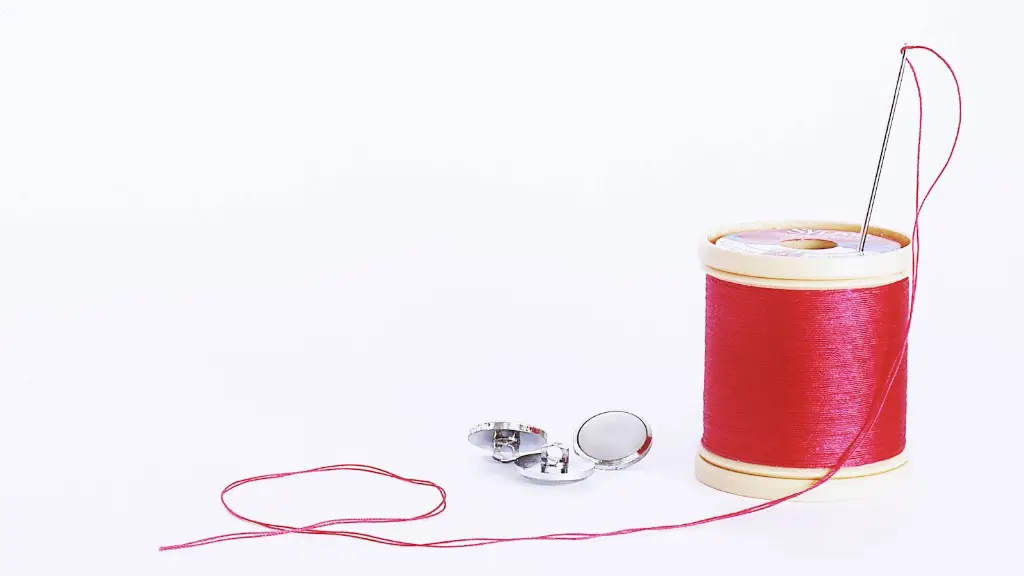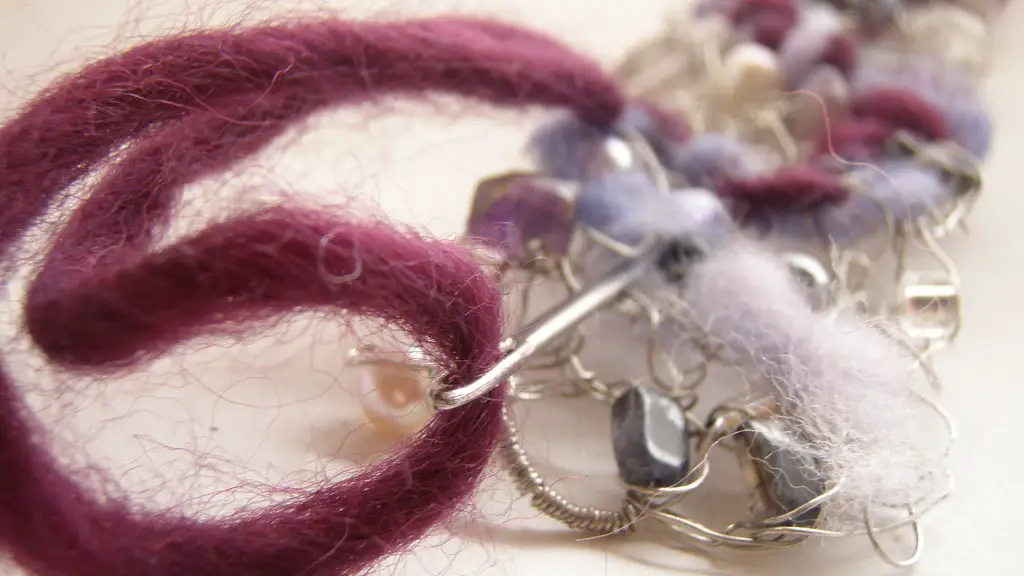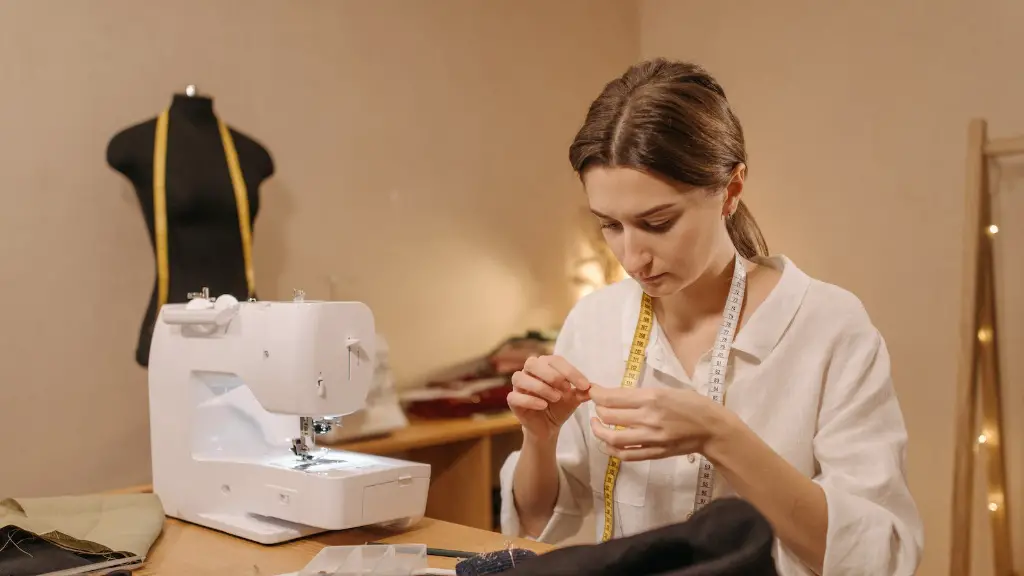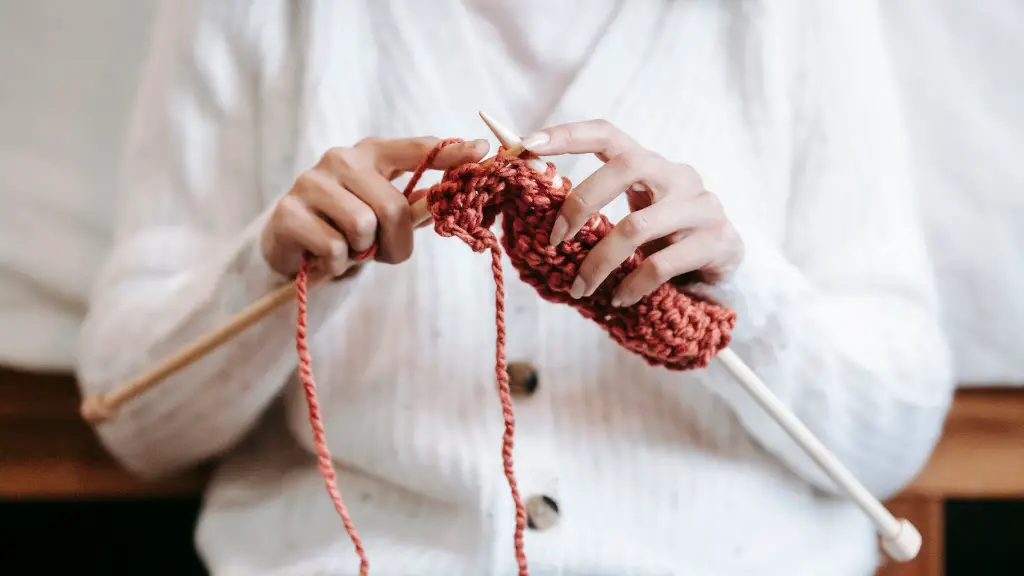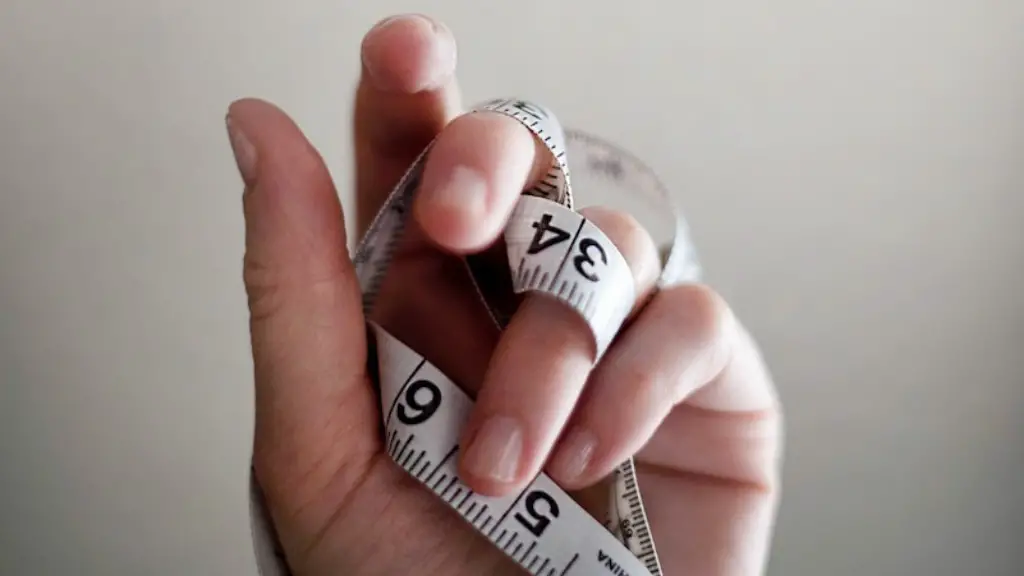Overview of Sewing Machines
Sewing machines provide the perfect combination of convenience and accuracy, allowing you to sew fabrics with precision and speed. Sewing machines come in a variety of shapes, sizes and prices, so it’s important to do research before buying one. Choosing the right sewing machine depends on several factors such as the type of fabrics being sewn, the number of stitches per minute desired, the variety of stitches and accessories, and the cost.
Different Types of Sewing Machines
Sewing machines can be categorized into two main types: manual and electric. Manual machines are the simplest, requiring you to crank the wheel to sew. Electric machines are a bit more complex—they use a motor to drive the needle and feature a range of stitches and accessories. Some electric machines are computerized, allowing you to program the machine for specific tasks.
Who Sells Sewing Machines?
Sewing machines can be purchased from a variety of sources, including fabric stores, department stores and online. Department stores often have a selection of brands and types of sewing machines, along with knowledgeable staff to help you choose the right one. Fabric stores typically offer a wide selection of sewing machines, as well as a variety of accessories and materials. For convenience and the widest selection, shopping online can be the best option. Some websites specialize in selling sewing machines and offer an assortment of models to choose from, along with instructional videos and other resources to help you understand what features are important when selecting a machine.
Sewing machine dealers and repair shops can also provide valuable information about sewing machines as well as necessary repairs and maintenance. They usually carry both new and used machines, plus a selection of accessories. Price is often a factor when looking for a new sewing machine and although shopping around for the best deal is always smart, it is important to remember that not all machines have the same level of quality. It is important to find a store that has knowledgeable staff who can help you choose the best machine for your needs.
Considerations When Buying A Sewing Machine
When purchasing a sewing machine, it is important to consider a few factors to ensure you are getting the machine that is right for you. Consider what kind of sewing project you plan to do and the types of fabrics you will be working with. Also look at the features included with the machine, such as embroidery and quilting capabilities, the number of stitch varieties, and the possibility of free motion sewing. Also, think about the size and weight of the machine, whether you need a machine that is portable or one that is made to stay in the same place.
If you are buying a used machine, it is important to get all the details about the machine before you make a purchase. Ask about the model, accessories, warranty and other details. Additionally, inspect the machine for wear and tear and make sure it runs smoothly. Having the machine cleaned and serviced by a qualified technician can also be beneficial.
Pros and Cons of Sewing Machines
Sewing machines have both advantages and disadvantages. Sewing machines make sewing much more convenient and precise than trying to hand sew. They are also much faster than hand-sewing, as well as being able to do more intricate designs. However, some machines can be difficult to learn and may require a certain amount of skill to use properly. In addition, sewing machines can be expensive, especially those with lots of features. Sewing machines required maintenance, too, so it’s important to familiarize yourself with the different parts.
The Price of Sewing Machines
The cost of sewing machines varies greatly depending on the features and brand. Higher-end machines tend to cost more, but also offer more features. Manual machines typically start around $50 for basic models, while electric machines range from $100 to $1000 or more. Many retailers offer financing if you are on a budget and don’t have the cash upfront to purchase a sewing machine.
Additional Accessories and Supplies For Sewing Machines
In addition to the sewing machine, there are some additional supplies and accessories you will need, especially if you are a beginner. Be sure to invest in a good selection of thread, needles, scissors, tape measure, pins and bobbins. It’s also helpful to have a seam ripper, pin cushion, marking chalk, thimble and a hem gauge. Quality furniture for your sewing room can also make the experience more enjoyable.
Safety Tips for Sewing Machines
Sewing machines can cause injury, so it’s important to be cautious when using a machine. Never leave the machine running unattended and always be aware of where your fingers are. In addition, never keep your hands near moving parts when the machine is running. Always follow the manufacturer’s instructions and take the time to read your machine’s manual to familiarize yourself with all the safety features.
Tips for Buying a Used Sewing Machine
Buying a used sewing machine can be a great way to save money, but there are some things to consider before making a purchase. Ask questions about the age of the machine, the number of hours it has been used, and if it has ever been serviced or repaired. Also, be sure to inspect the machine for parts missing or broken, as well as any signs of rust or corrosion.
Make sure the machine has a working motor, the stitch width and length can be adjusted, and that the machine is in good working condition. It is also important to make sure the machine comes with a warranty and instruction manual. Finally, consider taking the machine for a test drive to make sure you are comfortable using it.
Difference Between Domestic and Industrial Sewing Machines
Sewing machines are generally divided into two categories: domestic and industrial. Domestic sewing machines usually feature fewer functions and stitches than industrial models and are designed for home users. Industrial machines tend to be heavier in construction, and feature more functions and vary stitches. They are typically used in garment factories and other businesses.
Typically, domestic sewing machines are lighter and more portable than industrial machines. They are also less expensive and come with features like built in stitches, adjustable speeds and other features that are tailored specifically for home sewers. Industrial machines offer greater speed, higher stitch accuracy and increased durability. While domestic machines may be suitable for smaller projects, industrial machines offer more capabilities and can handle tougher materials such as leather and canvas.
Upgrading Your Sewing Machine
An older model of sewing machine can be upgraded with accessories, parts and upgrades. Some common upgrades for home machines include a walking foot for more even feeding, a needle positioner for precision and control, and additional stitch patterns. Many machines have LCD screens that can be upgraded for digital settings for different stitches and speeds.
For heavy duty sewers, industrial machines can be upgraded with additional attachments such as binding attachments, buttonholers and cording feet. Other accessories such as a quilt frame, a comfortable work space and extra lighting can also be added. It is important to be cautious when purchasing or upgrading parts, as some may not be compatible with certain machines.
Caring For And Maintaining Your Sewing Machine
In order to keep your sewing machine running smoothly and efficiently, regular maintenance is important. This includes oiling and cleaning the machine and changing machine parts such as the needle, bobbin, and presser foot. Don’t forget to dust and clean the machine itself. To ensure your machine remains in good condition, always read the owner’s manual and follow the manufacturer’s recommendations for cleaning and maintenance.
Sewing Machine Service Centers
When it comes to repairs, it is a good idea to take your machine to an Authorized Service Center. Service centers usually carry an excellent range of parts, accessories and materials, as well as professional technicians who are qualified to do repairs. Before taking your machine in for repairs, it is a good idea to check with the service center for estimated repair costs.
Conclusion
Sewing machines are a great way to create beautiful garments and fabric projects. Finding the right machine for your needs is important, as is doing research and understanding the features available. Sewing machines can be expensive, but they will last longer with proper care and maintenance. With the right knowledge and supplies, sewing machines can help make beautiful projects a reality.
